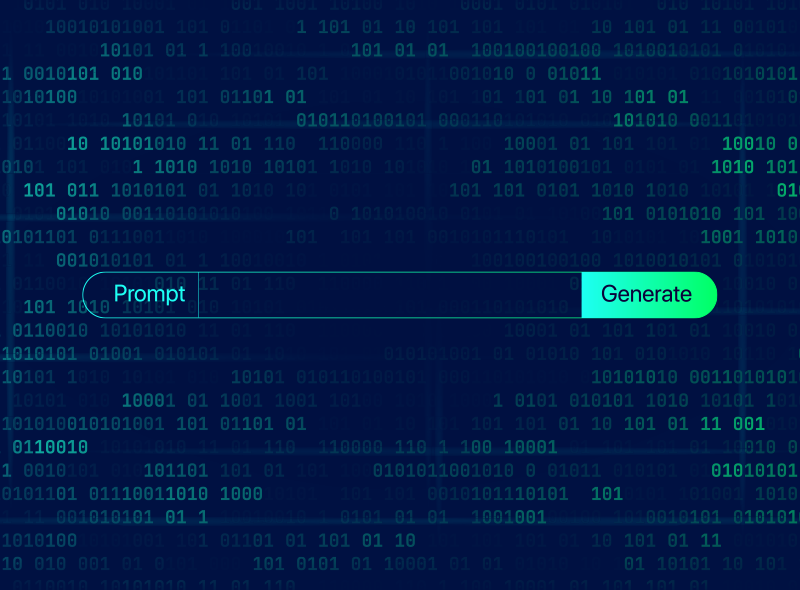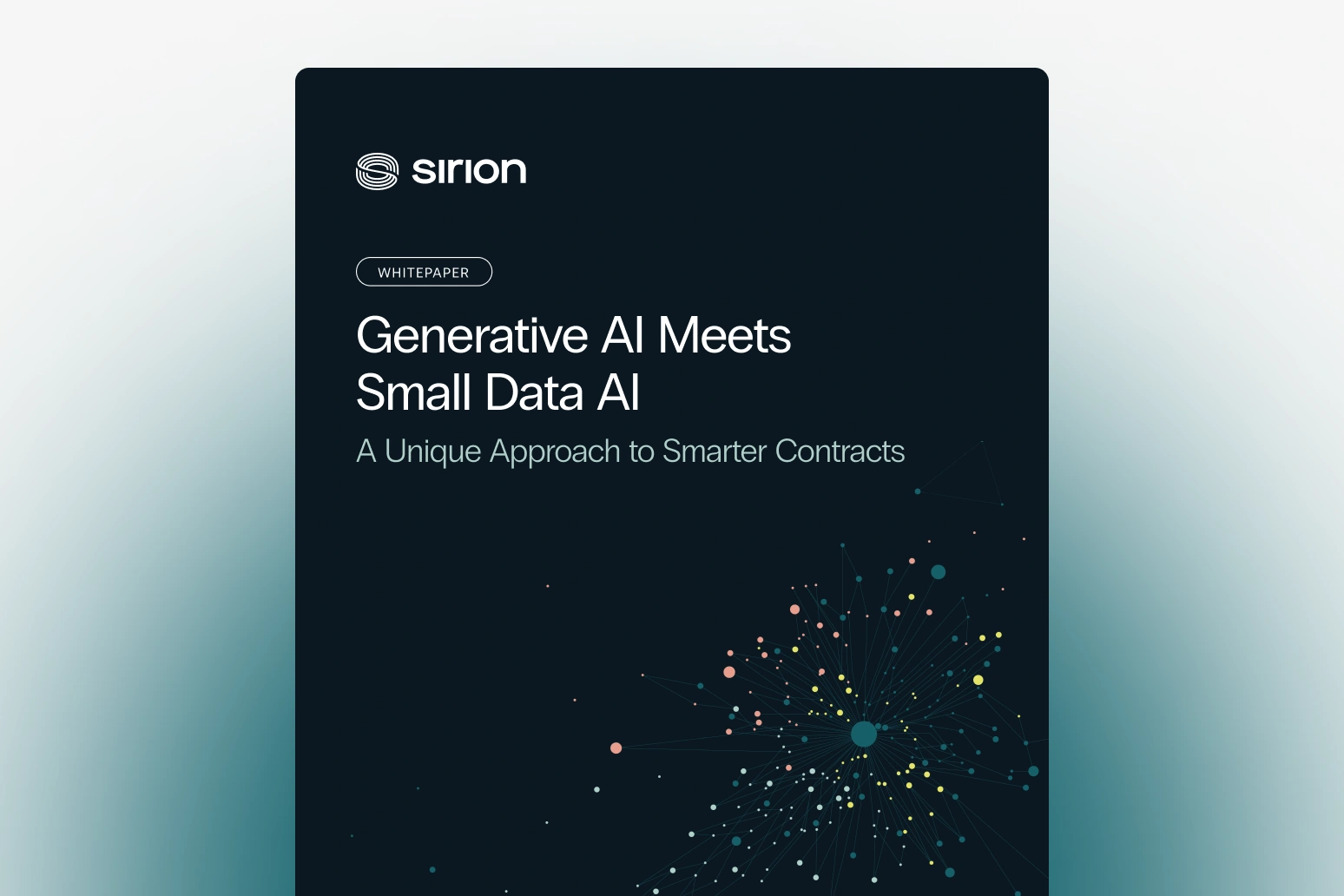Unlocking the Potential of Generative AI for Contracts: A New Era of CLM

- March 25, 2025
- 15 min read
- Arpita Chakravorty
Generative AI is revolutionizing industries, and contract lifecycle management (CLM) is no exception. With the ability to analyze, generate, and optimize contract-related tasks, generative AI is enhancing efficiency, reducing risks, and transforming legal and procurement workflows. However, its application is not without challenges. This article explores how generative AI is reshaping contracts, the hurdles it faces, and the hybrid models that can maximize its potential.
What is Generative AI? How it works in Contract Management?
Generative AI refers to artificial intelligence systems that create text, insights, and recommendations by learning from vast datasets. Unlike traditional AI, which follows predefined rules, generative AI leverages machine learning models—especially large language models (LLMs)—to process, understand, and generate human-like text.
In contract management, generative AI automates tasks such as:
- Drafting Contracts: AI generates contract templates and suggests clauses, accelerating contract creation.
- Review and Compliance Checks: AI identifies risky clauses, missing information, and inconsistencies to ensure regulatory compliance.
- Negotiation Assistance: AI-powered tools analyze past negotiations and propose optimized contract terms.
- Contract Summarization: AI extracts key obligations, deadlines, and insights, helping businesses make quick, informed decisions.
Generative AI has the potential to automate and improve numerous aspects of contract management, from drafting and negotiation to compliance and risk assessment. According to Forrester, AI-powered CLM solutions can reduce the time legal teams spend drafting and reviewing contracts by up to 80%. Companies are rapidly adopting generative AI, with Gartner predicting that by 2027, half of all procurement contracts will be AI-assisted.
The primary benefits of generative AI in CLM include:
- Efficiency Gains: Automating contract creation, review, and analysis accelerates the contracting process.
- Risk Reduction: AI can detect risky clauses, missing obligations, and inconsistencies across contracts.
- Enhanced Decision-Making: AI-driven insights enable companies to make informed decisions by analyzing historical contract data.
- Cost Savings: Reducing the need for extensive manual review and negotiation leads to lower operational costs.
- Scalability: AI can process vast volumes of contracts quickly and efficiently, making it ideal for enterprises with extensive contract portfolios.
By leveraging generative AI, organizations can significantly reduce contract turnaround time while improving accuracy, compliance, and risk management.
Generative AI vs. Traditional AI in Contract Management
Traditional AI in contract management is rule-based and focuses on automation and pattern recognition for tasks like:
- Optical Character Recognition (OCR): Extracting contract data from scanned documents.
- Natural Language Processing (NLP): Identifying predefined contract terms and clauses.
- Workflow Automation: Managing contract approvals and signatures.
Generative AI, on the other hand, enhances these capabilities by understanding context, generating new content, and providing insights beyond fixed rules. This makes it particularly valuable for nuanced tasks such as risk assessment, clause recommendations, and dynamic negotiation strategies.
While traditional AI is structured and deterministic, generative AI is flexible and adaptive, making it a powerful tool for modern contract management solutions.
The Challenges of Generative AI in Contracting
Despite its promise, generative AI is not a silver bullet. Several challenges must be addressed for it to be effectively utilized in contract management:
1. Limited Ingestion Capabilities
Contracts are often lengthy and contain highly complex legal language. Many large language models (LLMs) struggle to process documents exceeding their token limits, reducing their accuracy in understanding and summarizing contracts.
2. Lack of Contract-Specific Intelligence
Generative AI is trained on broad datasets, which may not include specialized contract terminology and nuances. This results in reduced accuracy when interpreting contractual clauses and obligations.
3. Traceability and Explainability Concerns
Legal professionals demand transparency in AI decision-making. However, generative AI models often struggle to explain why a specific recommendation was made, creating trust and compliance challenges.
4. High Computational Costs
Running generative AI models on large-scale contract repositories is computationally expensive, requiring significant investment in infrastructure and processing power.
A Multi-Model Approach: Combining Generative AI with Small Data AI
To overcome these challenges, organizations are adopting a hybrid approach by integrating generative AI with small data AI. This combination leverages the strengths of both models:
- Small Data AI: Utilizes task-specific labeled datasets to perform precise, deterministic contract tasks like clause data extraction and compliance checks.
- Generative AI: Provides broader reasoning and contextual understanding for tasks like summarization, negotiation, and insights generation.
This multi-model system ensures high accuracy while maintaining scalability and transparency. Some key use cases include:
- Issue Detection
For complex contracts, small data AI can pinpoint specific clauses (e.g., subcontracting consent requirements). Generative AI then analyzes these clauses to determine whether additional approvals or modifications are needed.
- Data Extraction and Reasoning
Small data AI can extract key contract dates, such as signing and maturity dates. Generative AI then processes this data to calculate renewal timelines and financial obligations.
- Interactive Contract Search
A hybrid AI system enables users to ask contract-related questions, such as “Which contracts have a cost-of-living adjustment (COLA) clause?” Small data AI retrieves relevant sections, while generative AI synthesizes the information into a comprehensive response.
Read our Report on : Generative AI Meets Small Data AI: A Unique Approach to Smarter Contracts
Best Practices for Implementing Generative AI in Contracting
Organizations looking to integrate generative AI into their contract management processes should consider the following:
1. Leverage a Multi-Model Framework
Avoid relying solely on generative AI. Instead, use a combination of LLMs and small data AI to achieve both scalability and precision.
2. Ensure Data Security and Compliance
AI systems should be deployed in secure environments that adhere to data privacy regulations like GDPR. Sensitive contract data should not be exposed to external AI models without strict governance.
3. Provide Explainability and Traceability
To build trust, AI systems should be able to cite sources, explain contract interpretations, and provide audit trails for recommendations.
4. Optimize for Cost and Performance
Organizations should assess the cost-effectiveness of generative AI by balancing computational expenses with business value. Right-sizing AI models based on contract volume and complexity is crucial.
5. Continuously Train AI on Contract-Specific Data
Pre-training AI models on proprietary contract datasets improves accuracy and contextual understanding, ensuring better performance in legal-specific tasks.
The Future of AI in Contract Lifecycle Management
The future of contract management lies in intelligent, AI-driven CLM platforms that seamlessly blend generative AI with specialized contract intelligence. Sirion is leading this transformation, leveraging AI-powered agents to optimize every stage of the contract lifecycle.
Sirion’s Multi-Model AI Framework
Sirion integrates generative AI with small data AI to achieve precision, adaptability, and automation. This hybrid approach ensures contract processes are efficient and accurate.
AI-Powered Agents Driving CLM Innovation
Sirion employs a suite of AI agents to streamline contract management:
- Issue Detection Agent: Identifies compliance risks, missing clauses, and inconsistencies.
- Redline Agent: Enhances negotiation by providing intelligent clause suggestions and risk assessments.
- Extraction Agent: Retrieves critical contract data for reporting, analytics, and audits.
- AskSirion: A conversational AI interface that allows users to interact dynamically with contract data, retrieve insights, and make data-driven decisions effortlessly.
The Impact of Sirion’s AI-Driven CLM
By leveraging these AI-driven capabilities, Sirion helps enterprises:
- Reduce contract risks by identifying compliance gaps.
- Enhance efficiency through automated contract analysis and redlining.
- Streamline execution with intelligent contract data extraction.
- Optimize decision-making via real-time AI-generated insights.
As AI technology continues to evolve, Sirion remains at the forefront of contract lifecycle management, ensuring businesses maximize the value of their contractual agreements with cutting-edge AI solutions.
Growing Importance of Generative AI in CLM
Generative AI is reshaping the way businesses manage contracts, offering unparalleled efficiency and insight. However, its limitations necessitate a hybrid approach that combines small data AI for precision with generative AI for contextual reasoning. By implementing best practices and leveraging a multi-model AI framework, organizations can unlock the full potential of AI-powered CLM, driving smarter contract management and improved business outcomes.

Arpita has spent close to a decade creating content in the B2B tech space, with the past few years focused on contract lifecycle management. She’s interested in simplifying complex tech and business topics through clear, thoughtful writing.
Additional Resources


